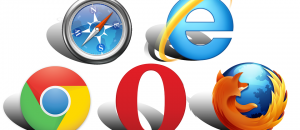The latest build of Chromium, the open source version of Google’s popular Chrome browser, has been updated with a very intriguing new addition to its code. According to developer François Beaufort, a skeleton framework for showing Google Now cards is present in the latest Chormium code. This means Google Now may be coming to desktops and laptops everywhere, courtesy Google Chrome.
Google Now is Google’s version of a digital assistant for mobile devices, currently currently available for Android 4.0 and higher devices. It is a vastly different approach compared to Apple’s Siri and other digital assistants, as it relies on information that you store on Google services such as Gmail or Google Calendar. Instead of speaking to your phone and asking different questions, you simply pull up Google Now and it displays relevant information that caters to your current situation using information cards. Leaving the country? Google Now displays cards providing information such as directions to your terminal and, most recently, your boarding pass. When you arrive at your destination, Google Now might display things like directions to your hotel and nearby attractions you might be interested in.
Google Now does so many useful things, it has been crowned the ‘Innovation of the Year’ by Popular Science magazine.
That said, it might seem a little less useful in your browser — you certainly don’t pull out your laptop while on-the-go as often as you do your phone. But if you think beyond the lack of mobility aspect, having Google Now on the desktop could end up being pretty useful as well. Imagine checking your computer in the morning, pulling up Google Now and seeing the weather, directions to any appointments you might have, and perhaps the movie you were gonna see that night. Essentially, image having a Google Now caliber assistant helping you with desktop/laptop related tasks rather than mobile.
All that, and you don’t even need to ask — Google Now just knows what you want and when you want it. And that is why it is probably a good thing (privacy concerns aside).
[via The Verge]

 Email article
Email article



